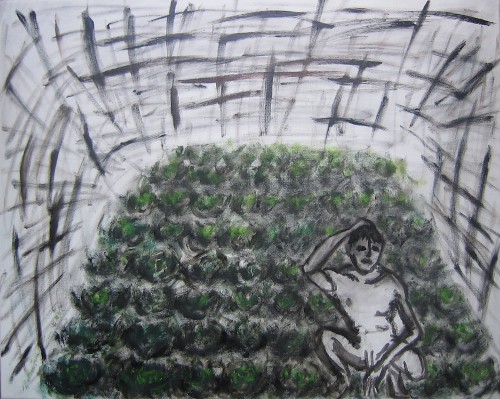This reminded me the unhappy consequence when the US started to import corns from Mexico in order to produce cheap ethanol to add to gasoline, and drove up the corn prices in Mexico, where many people rely on corn as daily food.
Kimchi is important in Korea, but people won't go hungry without it. Without cheap gasoline, Americans won't go hungry but high priced corns do make many Mexicans hungry.
Must one people's happiness built on the misery of another?
由於異常寒冷的冬天,因而疲軟的收穫,無處不在的發酵韓國菜,泡菜,近幾個月來價格暴漲。為了滿足需求,韓國人前往中國購買白菜,在一定的程度上引起白菜價格在部分中國上漲。白菜是中國北方的許多地方冬季必不可少的,尽管与20或30年前相比,对其依賴有所減弱。我小时,在中國東北,各个家庭購買數百甚至超過一千磅的白菜,以应付近六個月的漫長冬季。對於許多人來說,白菜仍是他們冬季唯一買得起的,因而任何提價,無論多小,都將在他們身上產生巨大的負擔。
這讓我想起美國開始從墨西哥進口玉米,以生產出廉價的乙醇添加到汽油的不愉快的後果時。這抬高了墨西哥的玉米價格,那里許多人依靠玉米作為日常食物。
泡菜在韓國是重要的,但沒有它人們不會挨餓。沒有廉價的汽油,美國人不會挨餓,但高價位玉米,使很多墨西哥人餓了。
必須一個人群的幸福建立在其他人群的痛苦上吗?

Vegetable Garden © Matthew Felix Sun




No comments:
Post a Comment